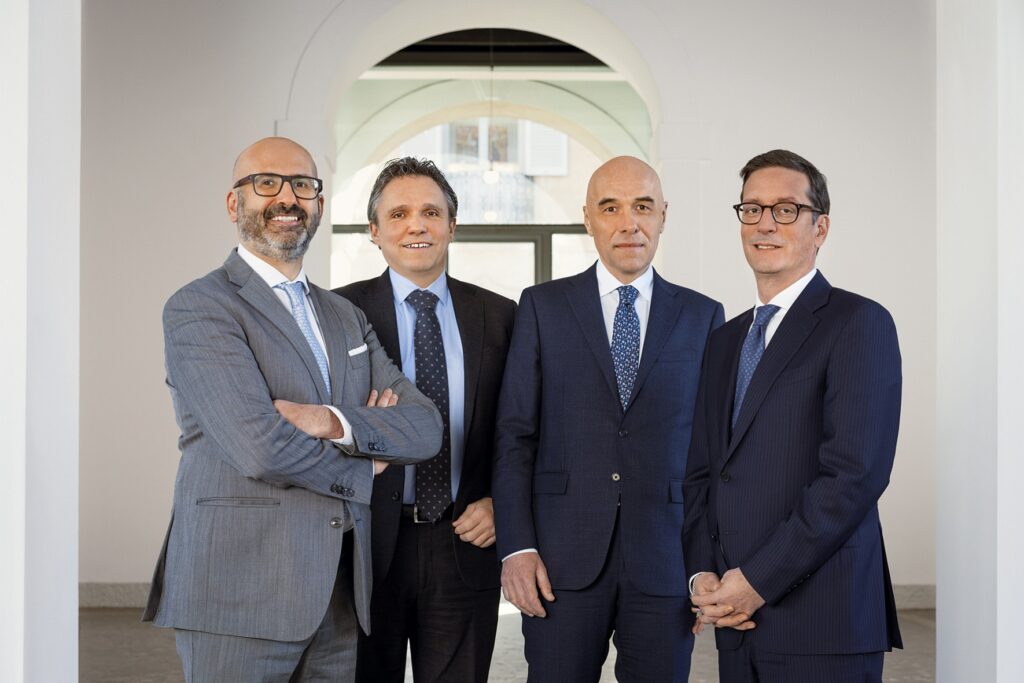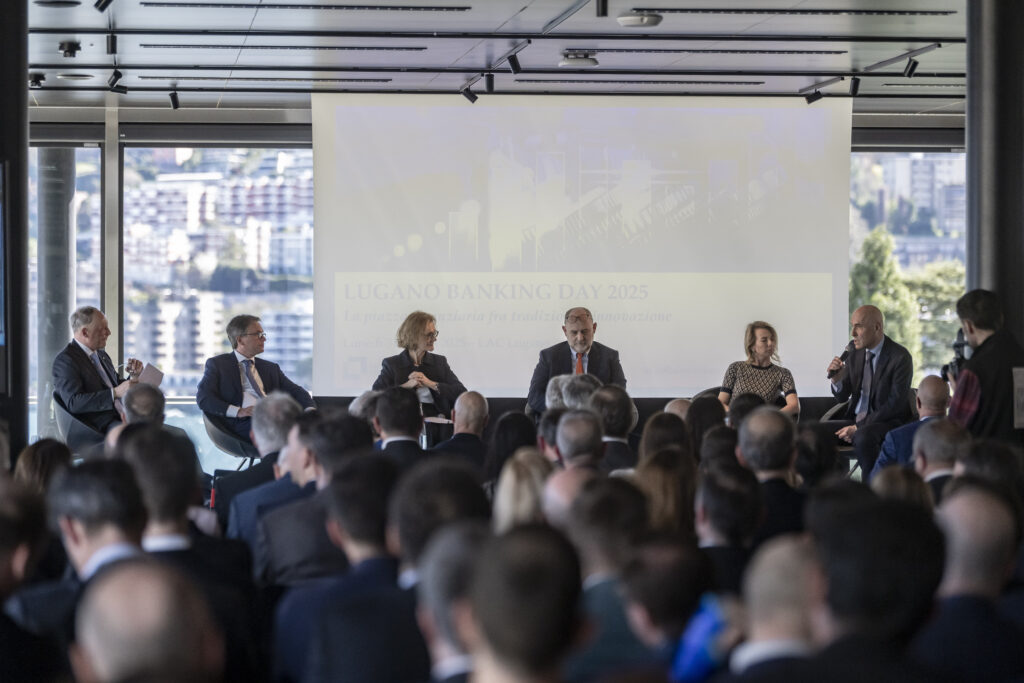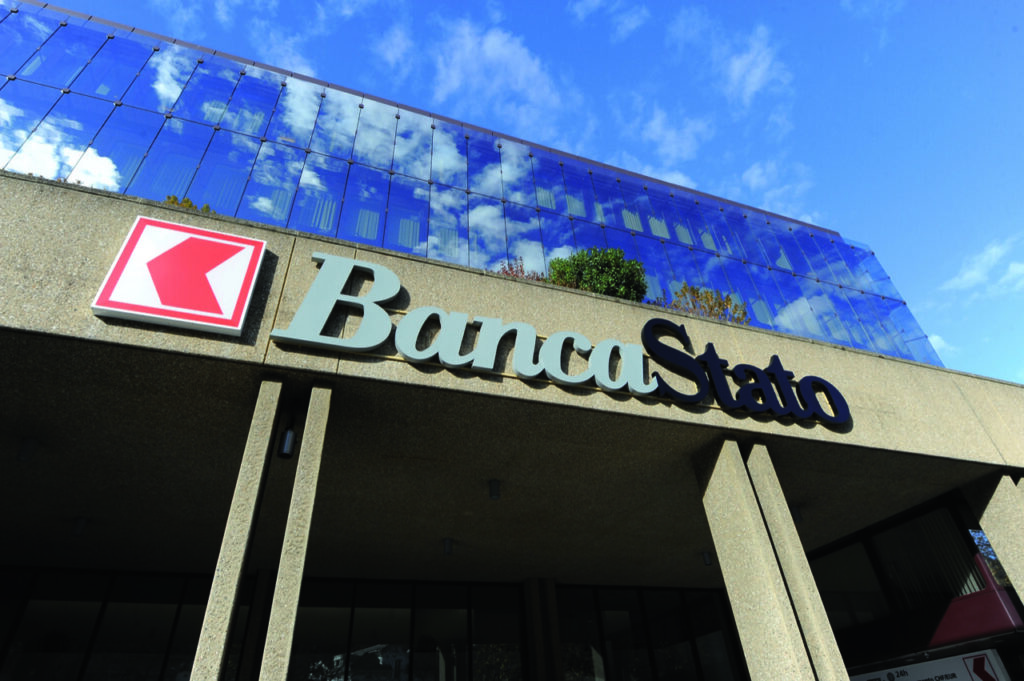Che cosa ha rappresentato nella strategia di BIL Suisse l’evento del 28 aprile scorso, rispetto all’obiettivo di creare una piattaforma di scambio tra imprenditori, investitori e BIL Bank?
«La scelta di sponsorizzare l’evento Decentralized Lugano nasce dalla considerazione che si trattava di una opportunità unica, non solo rispetto a Lugano, ma anche ad altre analoghe iniziative tenutesi a Amsterdam e a Parigi, per consentire ad una platea estremamente qualificata di imprenditori, investitori o clienti della Banca, di incontrare un rilevante numero di aziende che già operano nell’ambito della Blockchain e stanno creando delle applicazioni sulla piattaforma di Polkadot e, soprattutto, conoscere di persona, attraverso il racconto delle loro dirette esperienze, tutte le potenzialità che questa tecnologia, applicata in vario modo nei diversi settori, è già oggi in grado di esprimere in funzione dello sviluppo del business e la creazione di valore. L’obiettivo che ci eravamo proposti, e che sicuramente è stato raggiunto, come testimoniamo il numero e il livello di partecipazione dei presenti, era quello di creare un messaggio di comprensione e dare fiducia nei confronti di questo ecosistema destinato ad impattare in modo importante, quando non addirittura decisivo, non solo nel mondo dell’economia e della finanza, ma nella vita di tutti i giorni. Un concentrato di informazioni ad altissimo livello utile ad educare anche i non addetti ai lavori all’utilizzo della tecnologia Blockchain».
Che cosa significa per la vostra Banca adottare una strategia per stabilire un raccordo tra la finanza tradizionale e la tecnologia Blockchain?
«In un periodo di trasformazioni epocali nell’economia, nella finanza e in generale nella società, anche per BIL si è posta il problema di esplorare tutte le nuove opportunità che possono consentire al mondo bancario di crescere e ampliare la propria presenza sul mercato. In questa prospettiva non vi è dubbio che risulterà determinante la tipologia e la qualità dei servizi e delle soluzioni offerte agli imprenditori e il rapporto stabilito con gli investitori. In Lussemburgo offriamo servizi a 360° mentre qui in Svizzera siamo soprattutto focalizzati sul Private Banking. Il nostro approccio al mondo Cryptovalute e Blockchain nasce dunque dall’incontro con alcuni investitori professionisti che avevano necessità di una banca tradizionale per gestire parte dei loro capitali generati in ambito Blockchain. Il passo ulteriore è stato un progressivo ampliamento delle relazioni con qualificati investitori privati e, successivamente, una stretta collaborazione con il fondo di venture capital Scytale, nei confronti del quale non siamo depositari ma operiamo come banca commerciale. L’evento Decentralized Lugano ha rappresentato dunque un’ottima occasione per rimarcare la presenza della Banca in un ambito finanziario ancora in buona parte da scoprire, definire e regolamentare e, nel contempo, rinsaldare qualificate relazioni con aziende operanti in ambito Blockchain e investitori privati, nell’ambito del rispetto delle specifiche competenze».
A vostro giudizio, come si sta attualmente evolvendo l’industria blockchain e come questa tecnologia dirompente potrebbe cambiare il futuro?
«La tecnologia Blockchain ed il web3 potranno sicuramente aiutare a costruire applicazioni Internet in una forma più decentralizzata e nel pieno rispetto della privacy degli individui, evitando ad esempio che le comunicazioni diventino bersaglio di governi non democratici o istituzioni interessate al loro controllo. Ci piace sottolineare la straordinaria attenzione con cui i partecipanti all’incontro hanno ascoltato l’intervento di Gavin Wood, co-fondatore di Ethereum, autore della white paper e co-fondatore di Polkadot, nonché fondatore della Web3 foundation. Gavin ha confermato tra l’altro il rilascio e roll out di XCM, il nuovo formato di cross-consensus messaging (messaggistica cross-consenso) che aiuterà a definire un linguaggio relativo a come dovrebbe essere eseguito il trasferimento di un messaggio tra due blockchains interoperanti. «Si tratta – ha dichiarato – di un notevole progresso per Polkadot, che consentirà per la prima volta alle parachains di comunicare tra loro, rendendo possibile il trasferimento di NFT tra le varie chains. Per fare un esempio concreto, sarà possibile prendere in prestito una NFT che rappresenta un determinato item in un videogioco (un’arma, un gadget, ecc.) da un’applicazione di finanza decentralizzata. L’avvento del nuovo format si tradurrà inoltre in un miglioramento rilevante in termini di sicurezza e performance e in un ulteriore perfezionamento dell’intera tecnologia Polkadot».
Lugano è sempre più una città Blockchain e cripto-friendly. Quale futuro si può ipotizzare per la città riguardo alla conoscenza e all’adozione di queste tecnologie innovative?
«Gli ultimi 2-3 anni hanno confermato una precisa volontà del mondo politico, del mondo finanziario e di numerosi imprenditori a far diventare Lugano il punto di riferimento svizzero della Blockchain. Si tratta di un vero e proprio percorso di ammodernamento della città e di innovazione dal punto di vista del social thinking locale, da indirizzare a favore di una nuova infrastruttura urbana capace di attrarre investimenti e facilitare l’ingresso della tecnologia Blockchain nel mondo finanziario. Significativo a questo proposito quanto ha dichiarato a Decentralized Lugano, il Sindaco della città: «Il piano denominato Lugano Plan B, un’applicazione della Blockchain e di Bitcoin su larga scala in città, determinerà un impatto positivo su tutti gli aspetti della vita quotidiana dei cittadini di Lugano, dalle piccole transazioni per i commerci locali a progetti più ambiziosi. Stiamo lavorando ad una Blockchain pubblica, dove le aziende convenzionate possano iniziare a sviluppare applicazioni sulla blockchain in base alle loro esigenze. In pratica qualsiasi pagamento verrà accettato in Bitcoin, Tether e Luga, dalle imposte alla tassa sui rifiuti al certificato di nascita». È evidente che iniziative come l’incontro promosso da BIL concorrono in modo importante a raccogliere questa grande sfida e a creare opportunità uniche per la città di Lugano, che potrebbe crescere come vero e proprio polo di attrazione per investimenti crypto e come centro di interesse per tutti gli stakeholders che orbitano attorno a questo ecosistema».
Investire in startup innovative
Intervista a Mark Cachia, CIO e founder di Scytale Ventures
Come è nata l’idea di creare il fondo di VC Scytale Ventures?
The story starts in 2016 with an investment I made into a startup run by a friend, Ed Hesse, named Grid Singularity. The mission was to decarbonize the world energy grids using blockchain. For 20 years I had worked in the financial industry, most recently for a bank in Europe and previously for a large financial institution in the US. Embarking on the life of an entrepreneur in mid 2015 was challenge, co-founding a wealth management company which offered equity and private equity solutions for clients. I furiously educated myself on the long commute to and from the office, consuming books, language lessons, and podcasts, where I heard Naval Ravikant’s interview on the Tim Ferriss Podcast. To paraphrase, Naval said that he only wanted to invest in technology, because technology was responsible for the improvement of the human condition, and would continue to do so at a faster pace going forward. It was a Eureka moment which resonated deeply with me. I had first encountered Bitcoin in an article by Farhad Manjoo, back in 2011, but it was just too complicated to buy at the time, so I left it. One of our employees pushed to open a crypto trading fund, but I resisted, having invested billions with hedge funds, knowing how hard it is to consistently profit from trading. When ICOs started to gain steam in late 2016, early 2017, I saw the opportunity to merge my expertise in asset management with Ed’s expertise and network in blockchain, so I approached him in May 2017, and he agreed to launch a fund together. He brought 2 friends of his to the group, Aeron Buchanan and Gavin Wood. The thesis was to source and invest with teams building businesses on blockchain. Find them early, assess their business models and technology, then invest before they became widely known and adopted. I thought it would be an obvious value proposition for traditional investors, especially given my network in the hedge fund industry, but it was a bit early and optimistic.
Come ha convinto Gavin Wood a partecipare all’evento Decentralized Lugano?
Dr. Wood is a close advisor and lead investor. I simply asked him. Lugano is so beautiful and easy to access that convincing was not necessary.
Quali sono le vostre aspettative future per Polkadot e per gli asset digitali in futuro?
We have seen quite some volatility as hyped tokens without strong fundamental designs and/or technology have gone offline, gotten clogged, or have simply crashed. Polkadot, is built for the long term, takes the positives of Ethereum, which Dr. Wood technically designed and coded, and learns from the weaknesses, ensuring shared security, scalability, governance, interoperability, customizability, and upgradability. We believe that Polkadot will eventually be one of the most important ecosystems in the Web3 universe because of these features. Digital assets are a growing part of the technology landscape, and again to paraphrase Naval Ravikant, the place to be going forward.
Intervista a Christoph Kampitsch CEO Scytale Ventures
Quale ritiene possa essere il ruolo di Polkadot e Scytale Ventures, nell’accelerare, costruire e far crescere l’ecosistema blockchain?
«Polkadot and Scytale are interrelated in a unique way because of the makeup of the people involved in both. Gavin Wood, the founder of Polkadot, is also on our board of advisors and an investor in the Scytale Horizon II Fund. Polkadot on its own is revolutionizing the blockchain space because of its focus of interoperability and away from the winner takes it all focus. Of course for all of this innovation to happen throughout the industry requires a lot of financing. Our expertise at Scytale is treating our fund with an integrity and transparency that is from the traditional institutional investor mindset but for this completely new world. There are some large institutions that have finally realized that they must invest in this space because of the real world impact it is displaying. Polkadot is a big reason for that. At Scytale, we were an early adopter 5 years ago and provided necessary capital for some of these foundational blockchain companies. One of our differentiators as a fund is that we are very involved in our portfolio companies. We are not investors who sit on the sideline. We are very interested in assisting our leadership team in defining new sources of revenue, introduction to new clients, and collaborators. Where appropriate, and at the request of some of our companies, we will lend our leadership expertise to assist them in improving operations, corporate communications, employee engagement, business plans, etc. So, in short, from the tech perspective, Polkadot is the foundation for these various platforms to work together securely. As Gavin Wood said at the conference, he feels like its his job to be the liaison between the real mathematical geniuses who understand the math behind blockchain and the developers who really understand API’s. We feel the same way at Scytale for finance. We feel like we’re liaisons between the alternative investment community and these brilliant teams behind this new blockchain world. We believe that this symbiosis will help to accelerate and grow blockchain ecosystems».
Quali sono i settori in cui operano le start-up Blockchain come KILT, Centrifuge, Public Pressure, Odyssey, ecc.?
«A number of our companies are revolutionizing some traditional “real-world” industries such as Public Pressure which works in the music business. Like all of our portfolio companies, they have a team with a great pedigree. Now, while they are operating in the music and entertainment space they are bringing blockchain tech to the artists and a marketplace that will generate a whole new revenue stream via collectible NFT’s and other unique streaming opportunities. KILT is a big investment for us and one that we feel will really have a great impact. Security and personal anonymity is a huge topic for all web users. KILT is a fantastic tech that gives control over user autonomy and private data while also issuing the proper verification to the party they are engaged with. We have companies that are involved in legal matters that arise on the blockchain, some like Odyssey that are developing whole new ways for communities to exist solely in the metaverse. One of our large investments is overhauling energy markets around the world, so we have a number of different industries covered and some brand new segments being developed that will eventually create things we don’t even know about yet».
In quali società ha investito finora il fondo Scytale Horizon?
«So far we have invested in 11 companies with more to come. You can learn more at Scytale’s website and register for their newsletter where they give you a detailed view about that. It is important to note a bit about our investment philosophy. We are interested in the teams and the technology equally. Is the team great and is the technology great as well. Also we are very interested in transparency. As we mentioned, our expertise comes from the traditional institutional investor market. While we focused on alternative investments in the past, it was still in the traditional, heavily regulated marketplace. When we started our career nobody envisioned bitcoin, well not more than a concept that someone may thought about in passing, but certainly not the mathematics, coding and technique that evolved to become bitcoin and blockchain. So this has become the most alternative of alternative investments! In that matter of transparency we believe regulation is needed in the industry and we welcome the discussions to take place to make for a secure investment. We are committed to decentralization but even then, regulations are needed to protect users and/or investments».
















